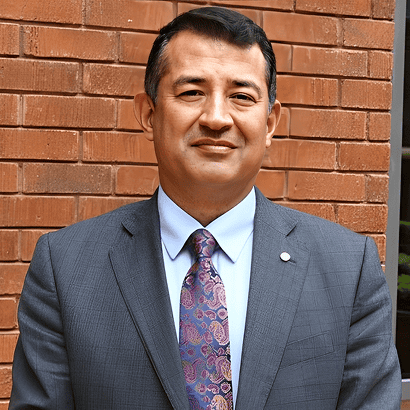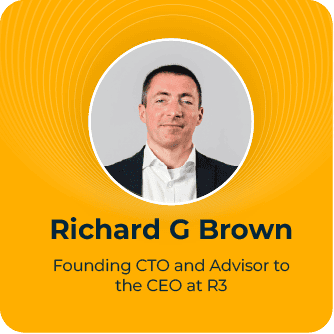
In this episode of The Digital Lighthouse, host Zoe Cunningham is joined by Shaukat Ali Khan, Executive Chief Digital and Information Officer (CDIO) at NHS West Yorkshire, to explore the future of digital healthcare. They discuss the importance of leveraging AI in healthcare, balancing innovation with governance, and creating patient-centric digital transformations.
Listen now to discover:
- How to drive digital transformation through four key pillars
- Why regulatory frameworks should be viewed as enablers rather than barriers to innovation in healthcare
- How to leverage existing AI solutions across healthcare systems, from diagnostic imaging to treatment planning
- The roadmap for creating an integrated, data-driven healthcare ecosystem within the next five years
- Why addressing digital inequality is crucial for successful healthcare transformation
If you enjoyed this episode, please subscribe so you don’t miss an episode. We would also appreciate a few moments of your time to rate and review on Apple Podcasts and Spotify; we value all feedback from our listeners to deliver the best content and experience.
Listen here:
Watch here:
Episode Highlights:
- [05:24] – Modernising complex healthcare
- [08:01] – Overcoming resistance to change
- [11:23] – Streamlining legacy systems
- [17:06] – Cutting through AI hype
- [19:19] – Real-world applications of AI in healthcare
- [21:57] – The future of healthcare
About our guests

Shaukat Ali Khan
Executive CDIO, Executive Director, and Board Member of the NHS West Yorkshire Integrated Care Board (ICB) and Integrated Care System (ICS)
Shaukat Ali Khan is the Executive CDIO, Executive Director, and Board Member of the NHS West Yorkshire Integrated Care Board (ICB) and Integrated Care System (ICS). With over two decades of experience in digital transformation across healthcare, education, and global humanitarian organisations, including roles at Aga Khan University, Novo Nordisk, and UNICEF, Shaukat brings a unique global perspective to healthcare innovation. Originally from Pakistan’s Hunza Valley, his journey spans multiple healthcare systems across North America, Europe, South Asia, and East Africa.
Transcript
[Zoe Cunningham] (0:01 – 2:01)
Hello and welcome to The Digital Lighthouse, where we get inspiration from tech leaders to help us navigate the exciting and ever-evolving world of digital transformation. We believe that meaningful conversations can illuminate the path forward, helping us harness the power of technology for innovation, scalability and sustainability.
Today, I’m absolutely delighted to welcome Shaukat Ali Khan. Shaukat is the Executive Chief Digital and Information Officer at the NHS West Yorkshire Integrated Care Board. With an impressive career spanning more than two decades, Shaukat has led digital transformation across healthcare, education and global humanitarian organisations, including roles at the Aga Khan University, Novo Nordisk and UNICEF.
In his current role, he’s driving digital initiatives that benefit 2.4 million residents, overseeing a vast network of healthcare providers and more than 100,000 users.
In this episode, we’ll be exploring the future of digital healthcare, how technology, data and AI are transforming patient outcomes and how leaders can drive meaningful innovation in complex public organisations. Shaukat will share his thoughts on balancing innovation with governance, the role of collaboration in delivering better health services, and what it takes to build a truly future-ready healthcare ecosystem.
So Shaukat, welcome to The Digital Lighthouse.
[Shaukat Ali Khan] (1:50 – 1.51)
Thank you very much.
[Zoe] (1.51 – 2.01)
I know that you’ve come a long way to get to where you are today.
Could you maybe start by telling us a bit about your journey?
[Shaukat Ali Khan] (2:01 – 4:43)
Yeah, first of all, thank you so much for the opportunity. And absolutely, my journey has been shaped by a deep passion for leveraging technology to drive meaningful change. As you know, I am from the mountains in the north part of Pakistan from a valley called Hunza.
And over the past two decades, I have had the privilege of working across multiple sectors and multiple systems, actually North American system, European system, Soviet system, South Asian, East African and now back to the UK system and different sectors; healthcare, education, pharmaceutical, humanitarian and defence and hospitality. Each offering unique challenges and opportunities. And my experience in global humanitarian organisations and higher education, such as my leadership roles at the University of Central Asia in Central Asia and Al-Akhan University, which operates universities and hospitals in South Asia, East Africa and UK, reinforced the power of digital innovation in bridging gaps, improving access and enhancing service delivery. And at Nodisk in Denmark, I witnessed firsthand how technology can revolutionise patient care and operational efficiency.
These roles helped me develop a holistic view of digital transformation, one that balances cutting edge innovation with practical user-centred implementation and a person coming from a very remote area witnessing all the challenges and then can easily understand the power of education and power of technology in bridging the gaps and how this can bring impact to the lives of all the people.
And joining the NHS as the Executive Chief Digital Information Officer, I felt like a natural evolution of this journey. The NHS is at a critical junction, as we know, in its digital transformation and I was drawn to the opportunity to contribute my experience towards improving patient outcomes, enhancing efficiency and shaping a future-ready healthcare system.
My diverse background from different cultures, different continents and different countries allows me to bring a cross-industry perspective, focussing on data-driven decision making, digital equity and sustainable innovation. I firmly believe that technology, when applied with empathy and strategic vision, can transform lives and I’m excited to help drive this transformation within the NHS. And with the new government’s focus on analogue to digital, it’s even more exciting times for us here in the UK.
[Zoe] (4:44 – 4:50)
There’s so much there, there’s so much to unpack. And you must feel quite remote where you are now from where you started.
[Shaukat] (4:50 – 5:24)
Yeah, I think it’s equally when I’m reflecting back to my journey, I think there are a lot of ups and downs, a lot of learnings, but I am very fortunate to have some amazing mentors across the board in different industries, in different countries, in different cultures, who put a lot of efforts in actually grooming my technical and personal capabilities. And I think it is a great reflection for me to see the diversity among different institutions and bringing all those things together in what I’m doing is really exciting.
[Zoe] (5:24 – 5:50)
So the healthcare sector right now is undergoing rapid change from all of these developments over many, many years, these developments of digital technology. How do you approach modernising something that is so complex and interconnected so that you can kind of take advantage of innovation and make sure it doesn’t get lost in like bureaucracy or in legacy processes that have been there since the start?
[Shaukat] (5:51 – 8:01)
Very interesting question, Zoe. As we can see, modernising a healthcare system as vast and interconnected as the current NHS requires a careful balance of innovation, pragmatism and stakeholder engagement because we need to deal with a lot of stakeholders across the system. The key is to drive transformation in a way that respects the complexities of the system while ensuring that innovation is not stifled by bureaucracy or legacy constraints.
And my approach is built on a couple of key pillars. First one, whatever we do is a patient-centric digital transformation because at the end of the day, that’s our key, that patient is our central and then whatever we do is patient-centric digital transformation. Second one is agile and incremental change because of the complexity in the system.
So we are very, very careful that we should not be disrupting the entire system at once. Instead, we should have an approach which is agile, which can appreciate the incremental change. And then the third one is breaking down the silos because there are a lot of different entities, different areas, departments, they work independently and how to minimise and reduce those silos are very, very important.
And then the last one is empowering a digital-first culture because whatever digital tools we apply or invest in, until we will have a digital culture where people can appreciate, own these technologies and tools, it’s very difficult to make it successful. This also means that on a grassroots level, on all different layers, we can have a culture where our colleagues can own these digital transformations. Ultimately, modernisation is about enabling the NHS to be more responsive, resilient and forward-thinking while keeping its core mission, delivering world-class healthcare at the heart of everything we do.
So I think the most important part is all these four pillars, which are mostly about the culture, about the patient-centric approach and then about breaking silos and then bringing an agility and incremental change within the institution.
[Zoe] (8:01 – 8:55)
Yes, those are all excellent points. And I particularly like the way you lay it out with, it’s about being patient-centric. So everyone’s working towards outcomes for the patients.
And then rather than technology being something separate that you’re kind of forcing your colleagues into, it’s about bringing them with you and empowering them so that they’re owning it. And it’s like digital solutions serving their needs. However, having said that, something that I’m sure you’ve seen across all of your roles is that particularly I think the larger the organisation, and it’s something that’s kind of quite well known about the NHS, that you do get resistance to change the larger an organisation is and depending on how things have been done before.
So what kind of strategies have you found to be the most effective in dealing with this kind of resistance to change?
[Shaukat] (8:55 – 11:24)
Yeah, it’s a very, very good question. And balancing innovation with regulation in large-scale public organisation like us, it is very, very important, which is actually an amazing opportunity. But of course, there are a couple of opportunities for us to address before actually doing anything.
And one of the essential challenges of embedding the innovation within a strong governance framework, because governance is important for us, but at the same time, how we can embed the innovation within that and one that ensures compliance, data security and ethical responsibility while still allowing room for agility and progress. And my approach in this context is based on a couple of basics, actually. And those is, for example, regulation is an enabler, not a barrier.
Because we have to be compliant, we have to follow certain rules and regulations, and we see those as an enabler and not as a barrier. And how we can enable is work with our regulators up front. During the solution discussion, during the approach discussion, we have to include them to understand what could be the better direction, better approach, which can enable us to get to where we are.
And then security and ethics at the core of what we do, because we are dealing with the patient data. So security and ethics are extremely, extremely important for us. And also for creating safe spaces for innovation.
For example, in the West Yorkshire ICB point of view, we have health innovation hubs across the board. They are working with startups, they are working with different smaller groups who come with different type of ideas, and then they work on those ideas into products. So how to enable those, how to be engaged with those type of ideas to bring better solutions within our context, and also a culture of responsible innovation.
Of course, the ethical parameters around innovations are equally important. So innovation does not have to come at the cost of compliance or security. By integrating agility, governance, and ethical foresight, we can modernise healthcare in a way that is actually safe.
And this is something I have been advocating. And then as a West Yorkshire Integrated Care Board, we are doing our best to enable our regions, which consists of five different districts in West Yorkshire, to come up with a safe, ethical, but at the same time innovative solutions for not only for West Yorkshire, but also for the entire system.
[Zoe] (11:24 – 12:25)
Yeah, that’s a really good point, because we see it as in conflict, right? We see it as you’ve got regulation, and then you’ve got innovation, and they’ve always got to be in conflict. But actually making the point that if you are patient-centred, right, the regulation is part of what you’re delivering, and working within those constraints is important.
And it actually reminded me of your kind of description of how these kinds of regulatory structures almost give you the safety from which to innovate, because you know that you can kind of innovate within this governance structure that’s there. It reminded me of one of my favourite concepts, which is the idea of creativity within constraints. That actually, as human beings, we can be more creative when it’s very hard to be creative if you can just kind of build absolutely anything.
Having constraints is what leads us to solutions. Have you got any kind of specific example of how you streamlined like a legacy system?
[Shaukat] (12:25 – 15:13)
So what we are doing at the moment is that as we speak, we are doing a discovery for our digital and data and technology strategy across West Yorkshire ICB. As I mentioned, West Yorkshire ICB consists of all these five districts in West Yorkshire. That includes Bradford, Leeds, Wakefield, Kirtadale, and Kirklee, with around 12 NHS Trust Foundations and also the local authorities and other healthcare providers within the region.
So what we are doing at the moment is that we are engaged with all different stakeholders to understand where we are with regards to our previous strategy. What are the gaps? What are the expectations?
And what are the new direction from the government? As we can see in UK, the new government come up with a couple of focus areas and one of the area is analogue to digital and what that translate into our healthcare system. And what we need to do at the moment is that we are gathering all those different inputs from all the stakeholders based on that we are building our three to five year strategy, which will come with 12 months, 24 months, and 36 months roadmap with a guiding principle for all our institutions within the West Yorkshire, which is aligned with our actually NHS England and government’s focus.
And one of the interesting part is that I have recently established an AI steering group. AI steering group consists of technology leaders, clinical leaders, and non-clinical leaders. And one of the most important part within this AI steering group is to identify use cases where we can use AI to optimise and not only optimise, but also leverage those solutions across the region.
The second one is to bridge actually from national initiatives, regional initiatives to bring back to the West Yorkshire on how those AI solutions can be used and at the same time understand and educate about responsible AI use and practise those best practises on do’s and don’ts of AI within the region. So I think it’s very, very interesting and I’m really looking forward to leverage on that because the future is actually whether it’s a healthcare, whether it’s any other systems, AI is the centrepiece and then everything else is around the use of that AI and that is something we are focussing here, which will bring capacity, which will bring education and then which will bring ideas for our future.
And ultimately, as I mentioned earlier, ultimately the purpose is to benefit our patients, to enable them access, to be efficient in our services and to optimise all the operational and admin work through these emerging technologies.
[Zoe] (15:13 – 15:52)
It’s really interesting. At a high level as a technology leader, I think a lot of the job is about, feels to me it’s a lot like kind of mapping out territory. So you need to be able to find out what’s out there and kind of see the lay of the land so that you can start, as you mentioned earlier, developing in a kind of iterative and agile and responsive way.
But first you need to know what is there and how that maps with your priorities and what the possibilities are so that you can then start building on that. So I’m sure there’s going to be a lot that will go into your roadmap for the short to medium term future.
[Shaukat] (15:52 – 17:06)
Yeah, I think we are really, really excited. As I mentioned, at the moment, we are running the discovery phase for our directorate, which is called TDAG Digital Data and Technology Directorate. In April, we are expecting the 10-year plan from NHS.
We will be incorporating the 10-year plan within our strategic work. And then we will do further engagement on our board level or executive management level to ensure that our process is inclusive, especially when we do these type of strategic works, always and very, very critical that the digital inclusion part should be there that we should not be creating digital divide across the stakeholders. And then we are mindful of the inequalities to reduce those inequalities within the region through these digital means by educating our people, by educating our staff, and then giving easy access where our patients can access these digital tools for their benefit of improving their quality of life.
So I think it’s very interesting times and a lot of expectations across. And then our amazing team across West Yorkshire ICB is actually day and night working towards this.
[Zoe] (17:07 – 17:43)
Something that I noticed was a core part of your strategy that you are going to be looking at going forwards is AI. And AI and data are increasingly being seen as game changers. But there is also a lot of kind of hype and a lot of fear around them.
So what’s your kind of strategy and your approach for separating the potential? Because like you say, these technologies are going to form part of the future. But how do you separate that potential from the noise when you’re trying to integrate AI into your healthcare delivery?
[Shaukat] (17:43 – 19:19)
Yeah, I think it’s a very interesting question. And this is one of our focus area, as we can see that AI and data have the potential to revolutionise the healthcare. But also navigating the fine line between innovation and overhyped expectations is also crucial.
And my approach to integrate AI and data-driven insights into our healthcare system delivery is grounded in three core principles. One is evidence-based adoption, ethical implementation, and human-centric design. So in all the different areas, you would see me saying patient-centric, human-centric, ethical implementation.
And these are very, very important because by focussing on proven impact, responsible governance, and clinical empowerment, we can cut through the AI hype and drive real variable improvements in healthcare delivery. And the goal is not just to adopt AI for the sake of innovation, but to leverage it in ways that genuinely transform lives and improve patient outcomes. Because there’s a lot of buzz about different types of AI.
I think what is important for us is that how we are taking this on ethical parameters, what are the ethical implementations of this? Are we also educating our colleagues across the use of AI and then caution them about the challenges it brings together? So I think a lot of our focus is within this part because I strongly believe that AI and data is our future and that is going to actually drive us all towards our future decisions.
[Zoe] (19:20 – 19:32)
And obviously your research and your review is ongoing, but have you got any examples to date of where AI has made a significant difference in a clinical situation or in operational decision-making?
[Shaukat] (19:32 – 21:57)
Yeah, I think now AI has been there for many years, right? So I can give you a lot of examples. For example, in the imaging part, all the radiology information systems, now there is a built-in AI which can indicate about different health, the radiologist about the diagnosis part of it.
Cancer detection, right? There is a lot of use cases on how AI is helping in detecting the cancer diagnosis part of it. AI is used as a built-in function within the electronic patient record for many things actually.
For example, if there is a patient with certain allergies and a clinician gave a certain dose of a medicine to a certain patient with certain allergies, then AI can also support in alerting them whether those doses are actually enough or okay for certain type of patients with allergies. So I think in healthcare, every single process, a lot of AI use cases are already in place. What we are working on at the moment is that and in our Leeds Teaching Hospital, in our Bradford Teaching Hospital and many other hospitals across, we are using AI for the diagnosis part of it, for detection part of it and then for the actual treatment part of it.
But what we are using at the moment as a system is that we are getting all those different type of use cases and then see if something is working at one part of the system, then how we can leverage the same to the other part of the system. And then if something is working on the national or regional level, how we can bring back those into our West Yorkshire level and also the ethical use of AI.
What are the parameters? What are the challenges? If we have best practises available across the system, then how we can leverage those to other parts. So I think there are a lot of use cases and a lot of discussions around AI.
And as I was attending a Gartner Symposium last November, previously what used to happen is that they used to tell us cloud and AI and data and all those different type of emerging technologies as trends. This time, all 10 trends are within the parameters of AI. So AI is at the moment ruling the technology domain overall.
[Zoe] (21:57 – 22:46)
Yes, well, that’s such a good point about, you know, what’s there already and also that we don’t need to invent everything from scratch. Technological progress is not just about how do we find something completely new or invent something completely new. It’s actually about sharing the existing knowledge and cross-pollinating that into different areas and different departments.
That’s a really excellent point. So if we could touch briefly on the future of healthcare and actually if we could fast forward five years, what would you hope to see? So what would your vision be in terms of digital transformation for the health service?
You know, what are the technologies you’re most excited about or the areas of innovation that you’re like, I think this is going to be key.
[Shaukat] (22:46 – 24:52)
I think if we fast forward five years, I envision a healthcare system that is truly, truly a patient-centric, digitally integrated and data-driven. What this means is that all the different systems, all these pieces across the board, they are connected and we use them for the actual benefit of our patients, where technology enables faster, more efficient and equitable care delivery. The focus will be on a preventive, predictive and personalised healthcare. That’s what I foresee with the digital transformation playing a pivotal role in improving patient outcomes and operational efficiencies.
And I foresee that if we do this right, then it will ultimately reduce the inequalities in our society. And I see that there’s a lot of focus on AI-driven, personalised medicine and decision support, a seamless interoperability and unified health records because we do have a lot of electronic patient records, but seamless interoperability and unified health records across the board is something I see.
Virtual and hybrid care is a new norm because COVID gave us this push that we can trust the digital part of it. And that’s actually increasing and predictive and preventive healthcare, which is also one of the focus areas from the new government in the UK alongside analogue to digital part of it. And also the cybersecurity for trust and data integrity because a lot of digitalisation is happening across that also brings the vulnerabilities with regards to information security, data security.
So this is an ongoing opportunity and challenge for all of us. And digital-first workforce and AI-augmented healthcare professionals, I think that is something I see. So these are a couple of areas where the work has started, but I see more maturity over the years to come.
So I think the next five years will be about harnessing technology to make healthcare more efficient, accessible and personalised.
[Zoe] (24:52 – 25:39)
It’s such a good point about accessibility and the importance of accessibility. And also I was really touched when you mentioned inequality because it’s not something that I think about on a day-to-day basis. But of course, inequality both is a result of health and the levels of health that each of us enjoy.
And also health outcomes are driven by inequality. And I think that there’s always a risk with technology that everyone rushes to deploy everything in the most profitable environment and actually being able to focus on the people who need it most and use technology to give everyone the same opportunities. I think I couldn’t wish for more over the next five years.
[Shaukat] (25:39 – 26:06)
I think it’s a lot of excitement, but at the same time, a lot of things we need to be ready. We need to educate ourselves, our colleagues and also our patients because all these digital tools, they bring a lot of opportunities for all of us. But at the same time, if we will not use properly or if you not know the use of these ones, then they create some challenges as well for us.
[Zoe] (26:06 – 26:16)
Well, that’s all we have time for. Thank you so much, Shaukat, for coming on and joining me on The Digital Lighthouse. Thank you to everyone for listening and see you next time.
[Shaukat] (26:16 – 26:17)
Thank you so much, Zoe.



